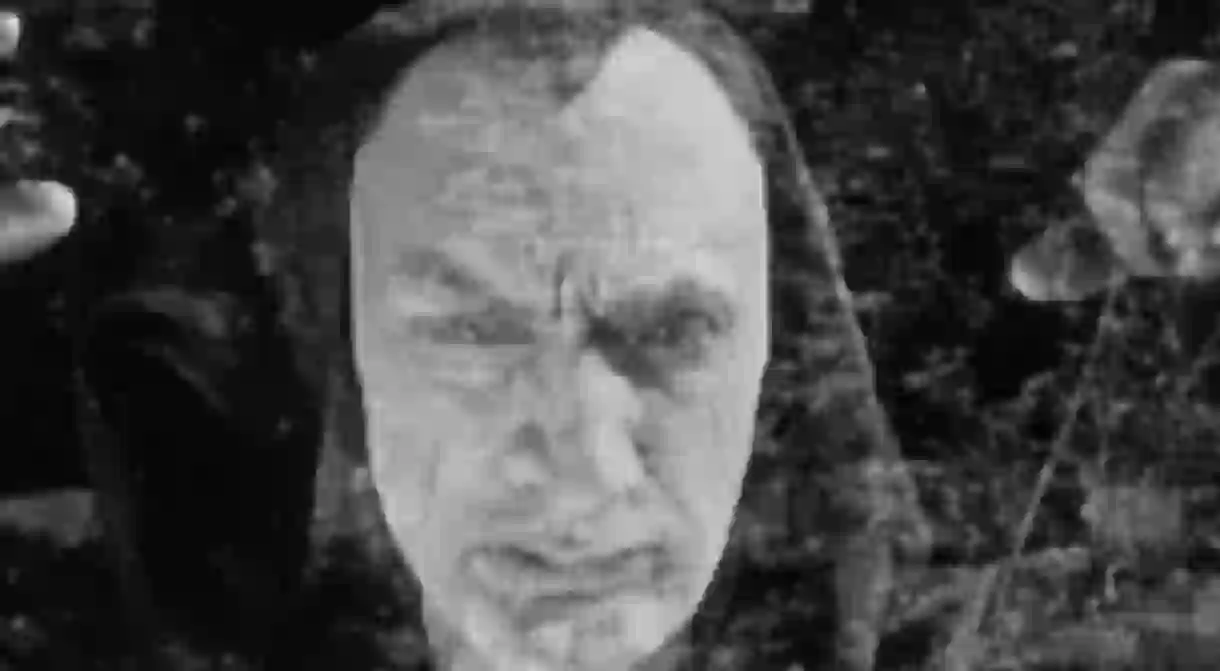Ukrainian Classics of Soviet Cinema

During the Soviet development of Russian and Eastern European cinema, Ukraine was one of the union’s most creative members, contributing both films and directors to the Soviet industry. Battling censorship and the Russia-centric apparatus of the Soviet machine, Ukraine fostered a host of talent with a distinctive national voice.
Zvenigora (1928)
Zvenigora is the first of the revered Ukrainian director Alexander Dovzhenko’s silent ‘Ukraine Trilogy’ which also includes Arsenal (1928), and Earth (1930). Dovzhenko himself is considered one of the leading pioneers of Soviet montage theory in the 1920s along with equally prolific peers Vsevolod Pudovkin and Sergei Eisenstein.
Dovzhenko’s first acclaimed outing swells with Ukrainian mythology, folklore, and culture; the story depicts Timoshka (Semyon Svashenko) ceaselessly excavating the mountain of Zvenigora in search of treasure. Zvenigora is a mesmerising piece of experimental avant-garde cinema as well as an expertly engineered vehicle for Soviet-era propaganda, which depicts the supremacy of a modernising motherland over western decadence.
Earth (1930)
The final part of Dovzhenko’s trilogy focuses on a small Ukrainian farming community and its response to imminent collectivisation, as well as the resulting resistance from the remaining Kulak landowners. Earth‘s subject matter made it extremely controversial upon its release. Dovzhenko intended the film to be a relevant commentary on a period of rapid economic change and modernisation; with a particular focus on the psychological effects of these changes on small-town Ukraine.
However, the film was robustly attacked by Soviet critics and those within the communist party’s higher echelons. Stalin sought the elimination of the Kulak class, so to openly depict rebellion and reflect the sentiments of those still trying to hold onto their land appeared counter-revolutionary. As a result the film underwent heavy censorship and Dovzhenko was ostracised, eventually immigrating to Western Europe. In retrospective Earth can be seen as Dovzhenko’s principal majestic vision and one of the most important works of the silent Soviet era.
The Lost Letter (1972)
The Lost Letter is based on one of a collection of short stories, entitled Evenings on a Farm Near Dikanka, by revered Ukrainian-Russian writer Nikolai Gogol. The inspiration behind The Lost Letter largely came from Gogol’s upbringing, which featured heavily throughout his early work. Set during the 18th century, Cossack Vasyl (Ivan Mykolajchuk) prepares himself for a journey to the capital of the Russian Empire, Peterburg, transporting a document from the highest military office to give to the nation’s Empress.
Directed by Borys Ivchenko, the film is suffused with Gogol’s literary magic and Vasyl’s journey appears saturated with early impressions of the author’s childhood. Folklore, village customs, colloquialisms, dress, and superstitions all come together to create an endearing picture of Ukrainian peasant communities. Fittingly filmed in Dovzhenko Film Studios in Kiev, The Lost Letter was unfortunately banned by Soviet censors and was not seen again until the fall of the Soviet Union.
Only Old Men Are Going to Battle (1973)
Only Old Men Are Going to Battle is an iconic piece of Soviet era Ukraine cinema. During its first year of screening it received over forty million viewings. The reason for its popularity was largely due to its star, Leonid Bykov, who was one of the most recognisable and beloved actors of his generation. Bykov wrote, directed, and took the lead role in this patriotic fighter pilot film which is based on the astonishing memoirs of daredevil pilot and ‘singing squadron’ conductor Vitaly Popkov.
Bykov himself plays the inspired Titarenko, the leader of a veteran unit who organises a choir in between life and death dog fights. Shot in monochrome black and white the film is as charming as it is tragic. While most of the audience at the time would have been made up of those that fought and lived the global conflict; Bykov successfully crafted a piece of cinematic solace which transcended generational gaps.













